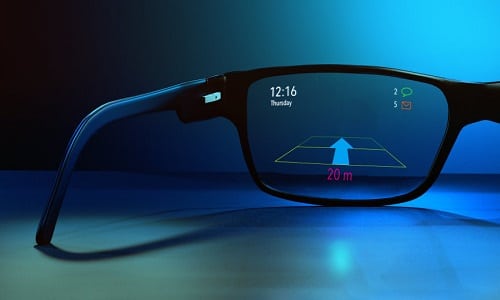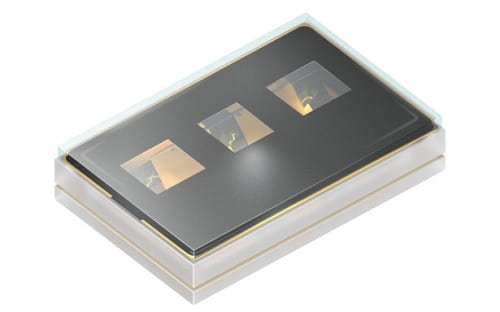The module demonstrates a light engine for smart glasses that can be compact enough to fit in standard consumer fashion frames

Augmented Reality (AR) or Mixed Reality (MR) smart glasses have been restricted to specialist industrial or professional applications. Because components such as the projection light engine or battery are rather large and heavy, they require bulky frames for support.
To design and manufacture consumer-friendly smart glasses (touted to be the replacement for mobile computing), a massive reduction in the size and weight of these components is required, without compromising the displayed image quality or brightness.
This can be achieved with the help of the Vegalas module launched by ams-OSRAM. The module demonstrates that a light engine for smart glasses can be as small as 0.7cm3 – compact enough to fit in standard consumer fashion frames.
“The optical and mechanical innovations in the Vegalas module are set to dramatically accelerate the growth in the market for smart glasses,” said Martin Wittmann, director of marketing in the Visualisation and Laser business line at ams OSRAM.
The Vegalas module combines three powerful lasers at red (640 nm), green (520 nm) and blue (450 nm) wavelengths in a robust, surface-mount package. The package is hermetically sealed to prevent contamination and degradation of the module’s laser chip-on-submount emitters. The module has a footprint of 7.0 mm x 4.6 mm and is 1.2 mm high.

ams OSRAM has collaborated with the LaSAR Alliance to produce a reference design of a projection light engine for a laser-based scanning system (LBS) based on the Vegalas module, alongside a MEMS mirror module from STMicroelectronics and waveguide from Dispelix. This latest light engine measuring 10 mm x 11 mm x 6 mm (0.7 cm3) is some 60% smaller than an LBS light engine based on three discrete ams OSRAM TO38 laser emitters, which is 1.7 cm3 in volume.
Volume production of the Vegalas module is expected to begin in the first half of 2023. Samples are available now in limited quantities.






